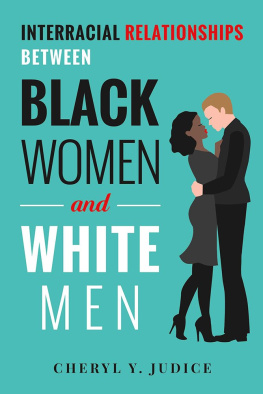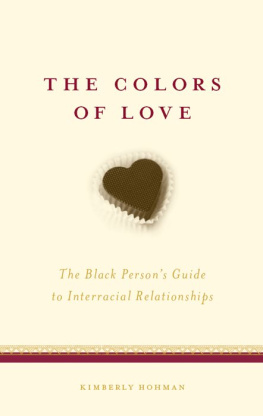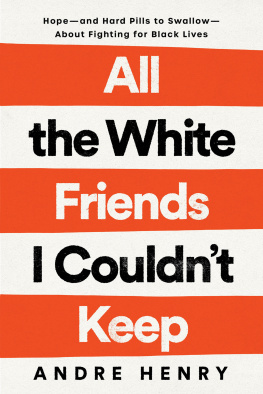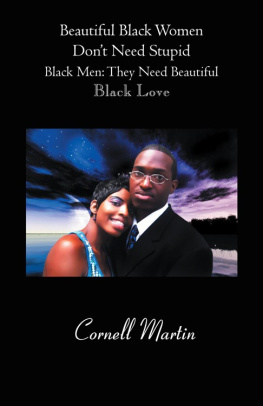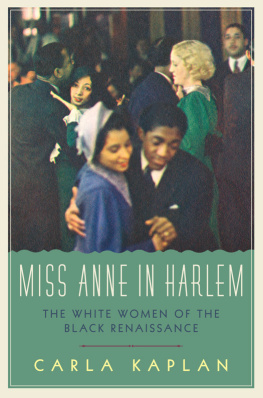CHAPTER
Black Women and Dating Challenges
For most young people, the college years represent the last time in their lives they will be in an environment comprised primarily of their peers. Attending college is viewed as a part of the American dream for many young people, the first chapter in their lives as independent adults and the last educational milestone to be achieved. For students living away from home, college life provides them with the freedom to date and form relationships, and to explore their sexuality without necessarily being constrained by parental boundaries. Most U.S. colleges and universities strive to achieve diverse student populations, which exposes some students for the first time to living or working in close proximity to people from various racial/ethnic groups and sexual orientations. Indeed, one of the primary goals of attending college is to explore and expand ones interests and to participate in new experiences.
For young African American women, attending college may mark the first time they realize that there are far fewer black males enrolled in school than black females. This numerical disparity impacts the social lives of both sexes, often resulting in tension between and within the two groups. Earlier generations of young women often chose to attend college for an additional reasonthe possibility of finding ones future husband. College campuses have long operated as social meeting grounds, and many young women enrolled at certain schools based on the type of young men who also attended. In the past, there was little shame in working on ones Mrs. while completing ones bachelor degree. Feminists of the late 20th century ridiculed the notion that young women would attend college to find prospective spouses, but the idea was resurrected in 2013 when a 1977 Princeton alumna, who had met her husband while a student there, wrote a letter to the Daily Princetonian exhorting the women students to look around campus for a future husband before graduating. Ms. Patton wrote, Heres what nobody is telling you: Find a husband on campus before you graduate. Ms. Patton went on to say that her letter was just intended to suggest to these women who are on campus today, again, keep an open mind. Look around you. These are the best guysIf the womens movement has done what it was supposed to do, it should enable all women to make whatever choices are appropriate for them, even if their choices are seemingly retrogressive. (5) While her letter was met with mixed reactions, Ms. Patton does make an important pointcollege campuses provide the last concentrated arena for young adults to meet each other.
I suspect many black female co-eds wish that they could follow Ms. Pattons advice while in college. Across the nation, more women are enrolling in college than men, and when you factor in race/ethnicity, black women are at a sharp numerical disadvantage if they only seek black males to date. The following example illustrates the devastating social consequences of the numerical sexual imbalance.
A few years ago, I was invited to speak on a panel at a university seminar on dating and marriage with two other sociologists who study race, class and gender issues and one licensed marriage counselor. The large audience was comprised primarily of African American graduate and undergraduate students. Most of the questions were fairly easy for the panelists to respond to, until one young black woman stood up and, in an emotionally anguished voice, began to speak. She stated that she was a junior in college, and in the three years she had been in school she had never been asked out on a date, and she had other girl friends in the same circumstances, and that she never thought when she went to college she would not have much of a social life, and that no one would want to date her. She was worried this same pattern was going to continue once she finished college, and wanted some advice on how she could change this situation.
The room became uncomfortably quiet and the panelists were struck by the young womans pain. Once she sat down, the other panelists began to suggest ways in which she could meet new people and perhaps through them find other people to socialize with, eventually meeting prospective dating partners. Time ran out before I could ask the young woman who she considered as potential dates, but it was clear from her responses to the other panelists suggestions that she was focused on finding a suitable black man. The seminar ended and I didnt have the opportunity to ask this young woman if she had considered trying to date outside her race, but it was obvious from student comments as they were leaving that the young woman had touched on a sensitive issue. Many black women on predominantly white college campuses have a difficult time finding suitable dating partners.
This is not a new issue for black women. Magazine articles from as early as the 1960s and 1970s addressed this issue from a variety of perspectives. However, few articles suggested broadening ones dating pool to include non-African American men as a possible solution. Perhaps the politics of the time (Black Power Movement, Civil Rights Movement, Womens Movement) didnt support dating interracially, but decades have passed since then, and the numerical disparity between black males and black females continues to grow, making dating outside of their race a viable option for African American women who want to get married.
There are several reasons why young black women have been reluctant to seek dating partners outside of their race. Among these reasons are the following: 1) never considered the idea due to family disapproval; 2) never considered that any man other than a black man could be attracted to them or by them; 3) fear of the unknown; 4) hair issues; and 5) low self-esteem. All of these reasons are explored in the following narratives.
Further, at another seminar on a predominantly white college campus, I was the invited speaker for a black womens group. Since few of them were dating, the young women wanted to hear more about my research on interracial dating and marriage. They were looking for suggestions on how to expand their social lives. Many of them thought it was a novel idea that someone other than a black man could be attracted to them or attracted by them and had dismissed this idea out of hand. Of those who had thought about dating interracially, some were fearful. How would they know if someone was genuinely interested in them or if they were being used as a social experiment? They were worried that they would not be accepted by a white males friends or family, and they would incur disapproval from their black friends or family members. Some were concerned that white men or other non-African American men would never choose them over white women or other women of color. At the core of their concerns was low self-esteem, most likely a response to the relentless message American and Western societies have put forth about beauty, standards which the typical black woman cant meet. It was disturbing to hear a couple of these young black women state that even though many of the black men on campus werent interested in them, they only had to be patient, as they believed the men would eventually return to them. I asked the young women why they would be content to be anyones second choice and not try to find someone who would choose them first. Moreover, why would they spend their young lives alone when this need not be the case? A few of the women acknowledged that, in theory, they knew I was right, but in practice, they really didnt see how they could change the situation. I was struck by the fact that I was speaking to a group of young, attractive, intelligent college-educated black women, and many of them had never considered getting outside their comfort zone when it came to dating. Indeed, many of the young women were trapped by the view that only a black man would want them or be acceptable. If one of the reasons to attend college (and this group had knowingly enrolled at a majority white college) is to broaden ones perspective and experiences, it was interesting that when it came to dating, few considered challenging long-held beliefs about suitable partners.

